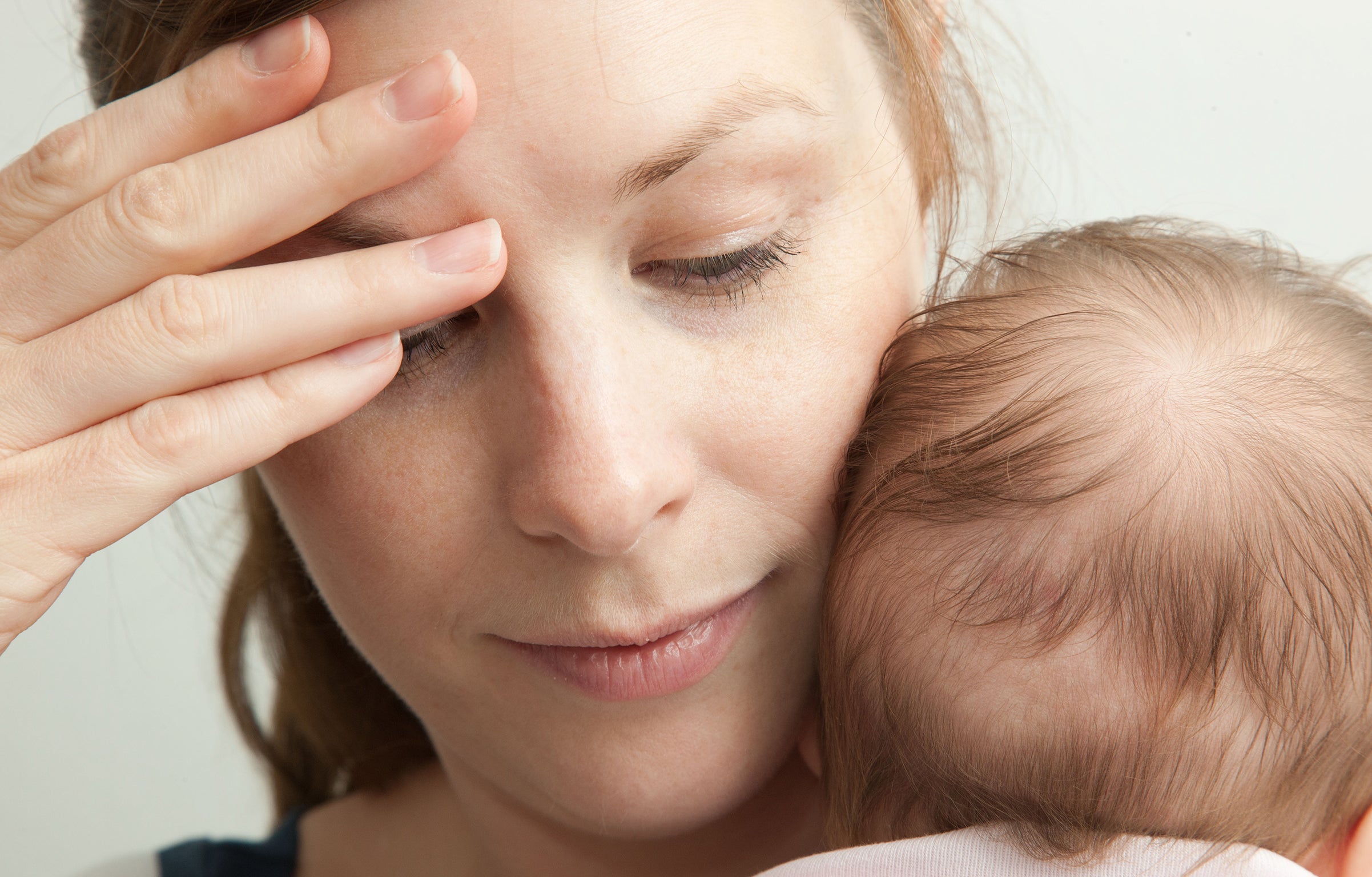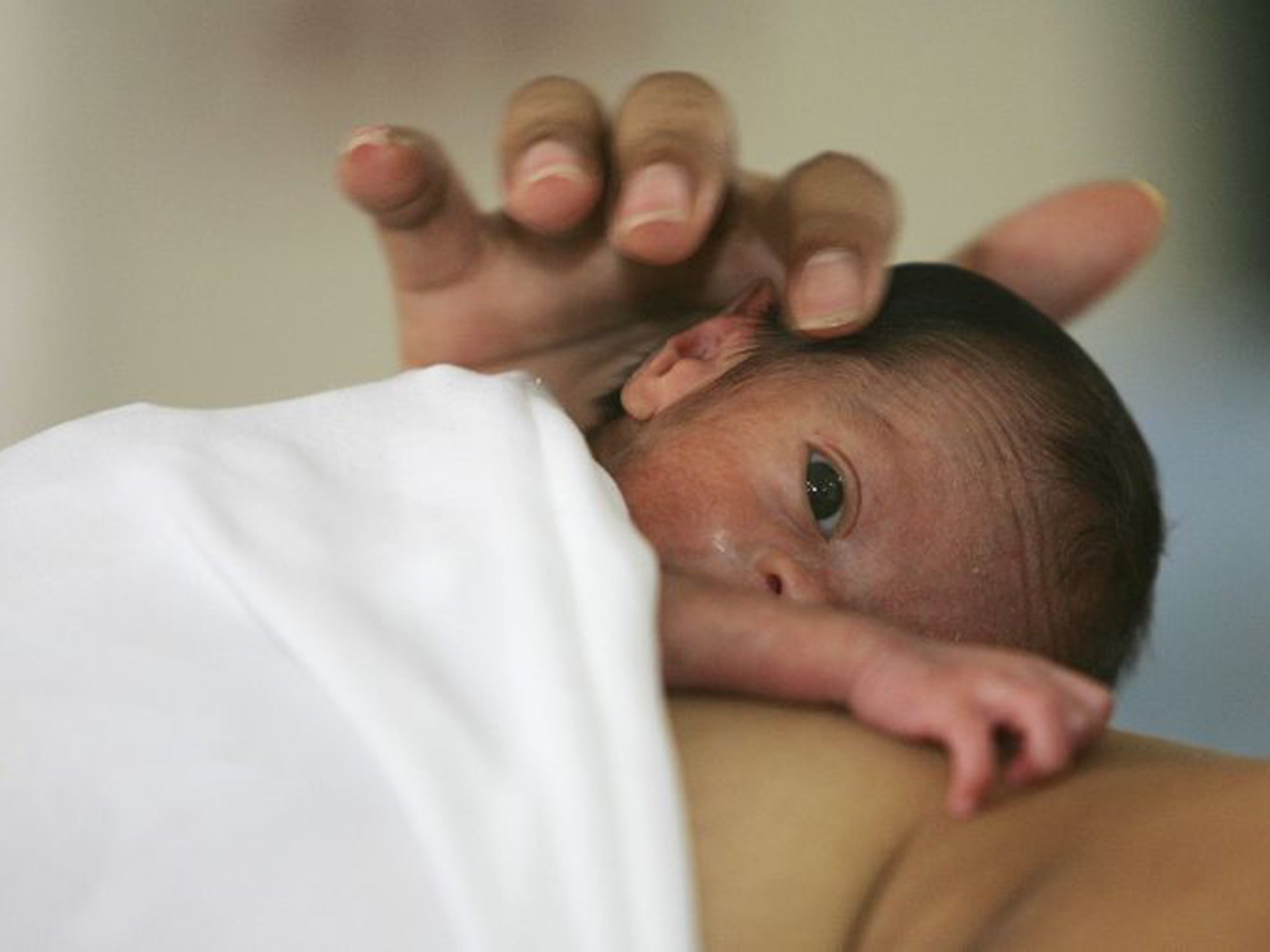Labour promises new mothers specialist help with 'hidden' illness of post-natal depression
The condition affects more than 70,000 women a year in Britain

Your support helps us to tell the story
From reproductive rights to climate change to Big Tech, The Independent is on the ground when the story is developing. Whether it's investigating the financials of Elon Musk's pro-Trump PAC or producing our latest documentary, 'The A Word', which shines a light on the American women fighting for reproductive rights, we know how important it is to parse out the facts from the messaging.
At such a critical moment in US history, we need reporters on the ground. Your donation allows us to keep sending journalists to speak to both sides of the story.
The Independent is trusted by Americans across the entire political spectrum. And unlike many other quality news outlets, we choose not to lock Americans out of our reporting and analysis with paywalls. We believe quality journalism should be available to everyone, paid for by those who can afford it.
Your support makes all the difference.A major drive against the “hidden” illness of post-natal depression, which affects more than 70,000 new mothers a year in Britain, is being pledged by Labour after it was revealed that hundreds of hospitals across the country offer no expert care for the condition.
More than half of NHS trusts surveyed offer no specialised mental healthcare for women with babies, prompting warnings that some mothers suffering acute post-natal depression end up in psychiatric wards.
Experts warn that many mothers are reluctant to admit to suffering PND because of the stigma attached to mental health problems as well as shame over their lack of maternal feelings.
Labour plans include steps to detect the condition earlier and provide specialist care, including training for all midwives and health visitors in spotting the early signs.
“This Government has failed to give perinatal mental health the attention it demands,” the shadow Public Health minister, Luciana Berger, said yesterday. “There are too many cases of women ending up on adult psychiatric wards, separated from their babies and partners, or not receiving any support at all.”

The party is also promising, as part of an overhaul of mental healthcare, to review the availability of perinatal mental health inpatient units across England. It plans to rewrite the NHS constitution to create a legal right for patients to receive counselling for mental health problems, identical to the existing right to drugs and medical treatment.
Elizabeth Duff, senior policy adviser at the National Childbirth Trust, who described provision for post-natal depression as “not very adequate at all”, said ignorance of the condition was widespread. “There’s a kind of expectation of a new mum with a healthy baby that she should be happy with everything, if a bit tired,” she said. “It has generally been put down to other factors rather than being a mental illness. There has been a feeling that if you hang on long enough, it will just go away.”
According to the Maternal Mental Health Alliance, more than one in 10 women develop mental illness during pregnancy or within a year of giving birth. It says there are “shocking gaps” in provision, with no specialist help in wide parts of the UK, including East Anglia, most of Yorkshire, most of Wales and half of the London boroughs.
The Government has told NHS England to reduce levels of post-natal depression. The Health minister, Earl Howe, said earlier this month: “We know there is more to be done.”
Join our commenting forum
Join thought-provoking conversations, follow other Independent readers and see their replies
Comments